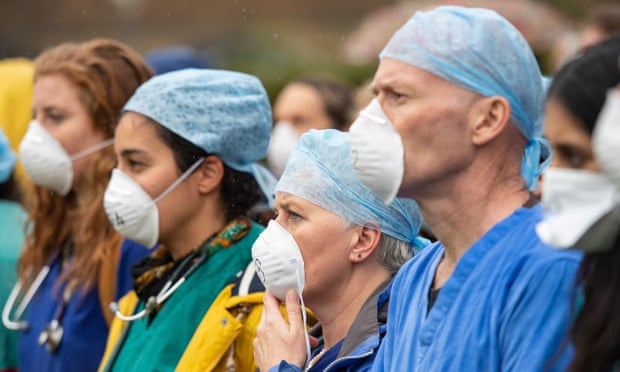Little progress has been made on tackling air quality in Europe, new research shows, despite public outcry in many countries and increasing awareness of the health impacts of pollution.
Levels of the dangerous fine particulate matter known as PM2.5, which can lodge deep in the lungs and pass into the bloodstream, appear to have reached a plateau across Europe, after more than a decade of gradual reductions. The results come from the European Environment Agency’s Air Quality in Europe 2019 report, published on Wednesday, which collates data taken from thousands of monitoring stations in 2017.
“We do not see any big improvement, or worsening, year on year,” said Alberto Gonzalez Ortiz, air quality expert at the EEA, Europe’s environmental watchdog. “It is PM2.5 that we should worry most about, and it is coming from domestic heating [such as wood-burning stoves], industry and transport.”
In 2016, the latest year for which an accurate count can be made, there were about 412,000 premature deaths in Europe from PM2.5 alone, according to the EEA. From 2014 to 2017, the levels of fine particulate matter remained broadly flat, after long-term reductions in levels of the pollutant stretching back to 2000.
Nitrogen dioxide (NO2) levels have fallen further, but remain a serious problem. Nitrogen dioxide is an irritant gas, emitted from diesel vehicles in particular. In 2017, according to the report, about 10% of monitoring stations in Europe showed levels above safety limits. In the UK, the monitoring station at Marylebone Road continued to record the highest level of nitrogen dioxide pollution in western Europe, despite falls in the overall concentrations of the gas.
Jenny Bates, air pollution campaigner at Friends of the Earth, said: “People across the UK are paying a heavy price for the government’s continuing failure to clean up the nation’s filthy air, with tens of thousands of premature deaths every year. While half of our European neighbours manage to comply with legal limits for toxic NO2 pollution, 36 out of 43 UK air quality zones continue to suffer unlawful levels. And we’re also failing World Health Organization standards for the most deadly fine particle air pollution [PM2.5] in places across the country.”
The government has pledged to bring forward air quality commitments in new legislation announced in the Queen’s speech on Monday. A spokesperson for the Department for Environment, Food and Rural Affairs said more recent data than that included in the EEA report showed “positive progress”, including one fewer road zone showing breaches in safe levels of NO2 in 2018 compared with 2017.
“We are working hard to reduce transport emissions and are already investing £3.5bn to clean up our air, while our Clean Air Strategy has been praised by the WHO as an ‘example for the rest of the world to follow’,” the spokesperson said. “Our environment bill will drive further improvements, increasing local powers to address key sources of air pollution and introducing a duty to set a legally-binding target to reduce fine particulate matter.”
Campaigners urged ministers to include legally binding targets based on WHO standards, with a duty on public bodies to take action to meet the targets, and a right to clean air enshrined in law.
Greg Archer, UK director at the NGO Transport & Environment, said the bill must be strengthened: “The proposed environment bill will create an undernourished, toothless watchdog. Without ambitious targets and actions to tackle air pollution, people will continue to die unnecessarily.”
Bates added: “Ministers must also scrap their multi-billion pound road-building programme, and invest in cleaner alternatives such as better public transport, cycling and walking facilities. This will not only allow people to breath more easily, it will also help address the climate emergency.”
Levels of ammonia are also on the rise, driven by farming. Ammonia can combine with other pollutants in the air to harm human health, and is also damaging to plants and wildlife. The Guardian revealed earlier this year that 3,000 deaths a year could be avoided in the UK by halving ammonia emissions from farms.
The Guardian
More about: airpollution
















































